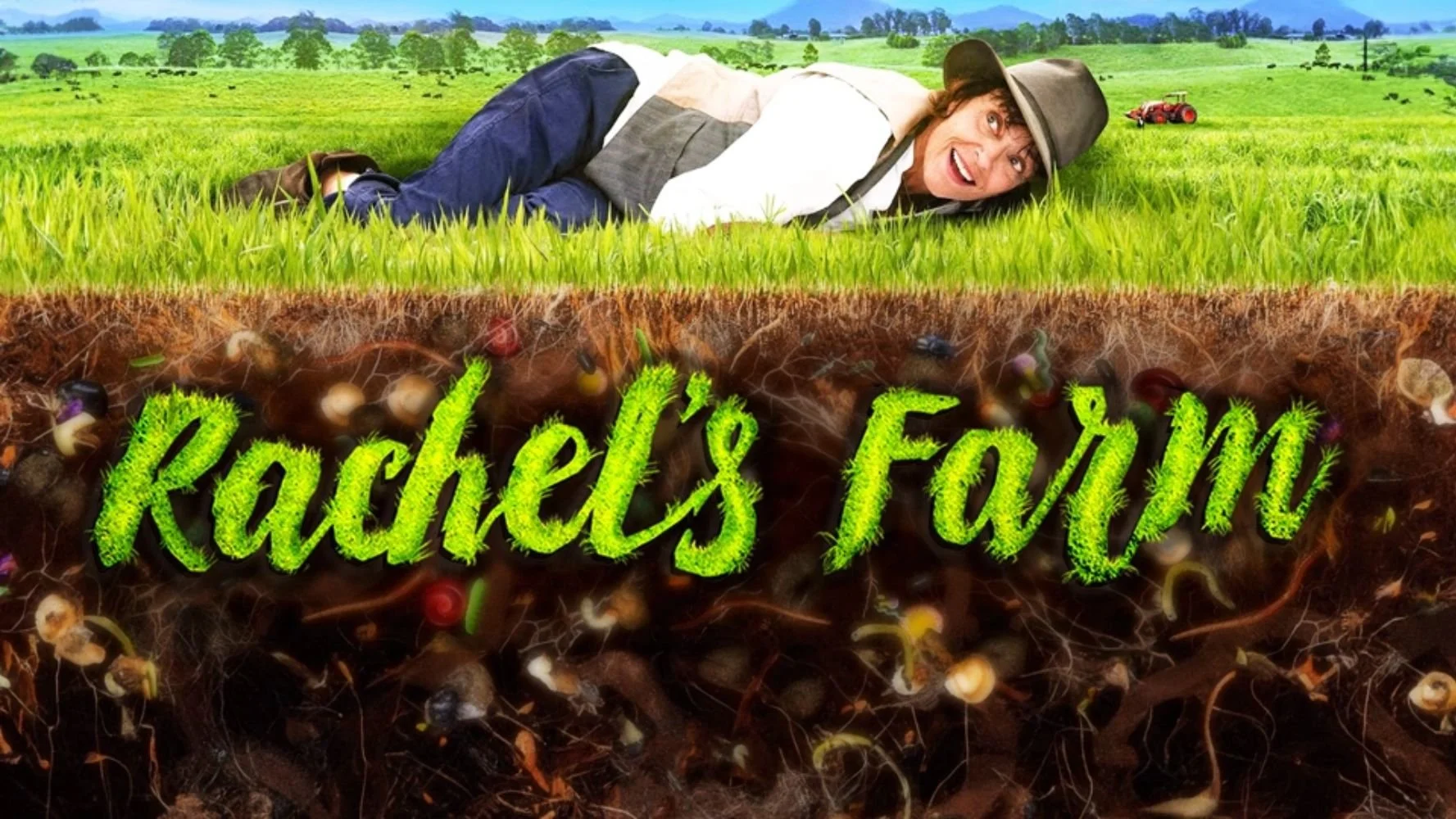Rachel’s Farm doco inspires regenerative farming movement
Rachel Ward looks right at home on her property.
Hinterland Homesteading by Racheal Pascoe
When I say Rachel’s … I mean Rachel Ward, the Actress and Director! She was here on the Sunshine Coast recently at a special community screening of her film/doco on Regen Farming. So what is it all about, this different approach to farming?
Rachel and her husband Bryan Brown (also an Actor) run a cattle property in NSW and had been running the property by the old methods for 30 years, using lots of chemicals as band-aid solutions to problems and using the land to graze cattle with old systems and approaches.
After the Summer fires in 2019/20, Rachel became very interested in the land, managing it, learning more about different practices, wanting to be better and improve what happened at their farm. And so begins the journey and the documentary. I don’t want to give it all away because I would love you to watch it for yourself, so I won’t tell you all but it was a jolt for me, I too want to do more, be better, give the grocery stores the slip when I can regarding buying foods and look after our earth.
Don’t worry if you don’t have a huge farm, you can still make a difference. I live on 3 acres and enjoy having animals etc, but what else can I be doing to help the land, animals and our future? Rachel Ward talks about going out for tea and seeing the ‘100 day grain fed steak’ on the menu.
What does that mean she asked the crowd on Saturday night… no one answered… she told us that it meant that the animals had stood in a feed lot for 100 days in their own poop with only grain to feed on.
I am an animal lover but I also know that they provide food for us, but I won’t be able to enjoy a steak again if this it what is happening. Rachel encouraged us to always ask where the food is from? Ask at the restaurant before you order your meal, ask the butcher where they source their meat from etc.
We need to get smarter with what we spend our money on, vote with our dollar so to speak. Rachel told us that there is a real power in this, people power. Rachel also encouraged us to buy from other sources than the 2 big grocery stores by buying from farmers markets, roadside stalls and eat what is in season in our local area to reduce the transport kilometres on our food.
Farmers who are wanting to change to Regenerative Farming practices are nervous to do so as it is a risk and a break away from what they know and have always done. It costs money to make change and they all still have families to support etc as they are doing all of this. How can we support them as they make these changes? We need to send a clear message to the big grocery stores. They buy the produce at low price from the farmer and make us all pay a high price for it at the checkout. The consumer these days is becoming much more aware of the quality of their food as well.
There is an
entire movement
that we can support
We are happy to pay a good price if it is great in flavour, the animals have been well cared for or the fruit trees haven’t been drenched in chemicals. There is an entire movement that we can support and you can get onboard with where you spend your dollars this week!
So why would we bother with all this change when it is so easy to stay the same? Well we are all invested in the future.
I look at my grandson and hope for a bright future for him. I look after our small acreage with my hubby, improving the soil, encouraging worms to do their work, getting excited when we have wins growing food and go back to the drawing board each time we have a fail. We are always learning and I invite you to check out the film Rachel’s Farm to find out more for yourself.
Rachel Ward is delightful in the film, she is just the same as she was in the Thorn Birds, only wiser and with more life experience. She wants to share with you, what she has learned and I think it is definitely worth our time. Happy Regenerative Farming everyone!


